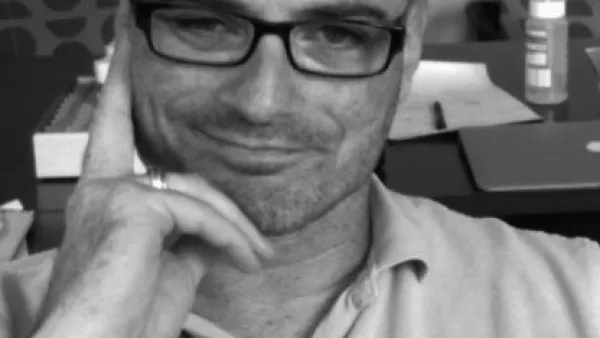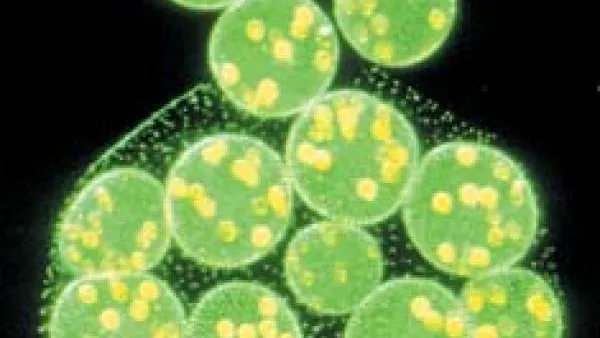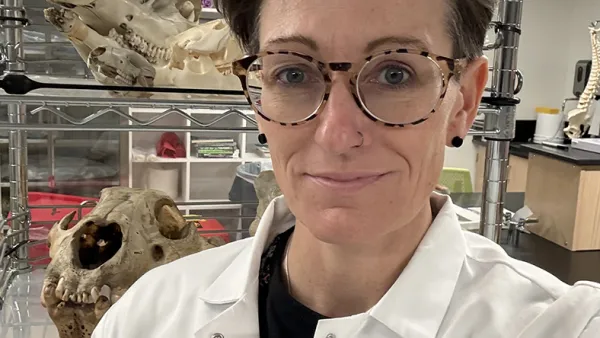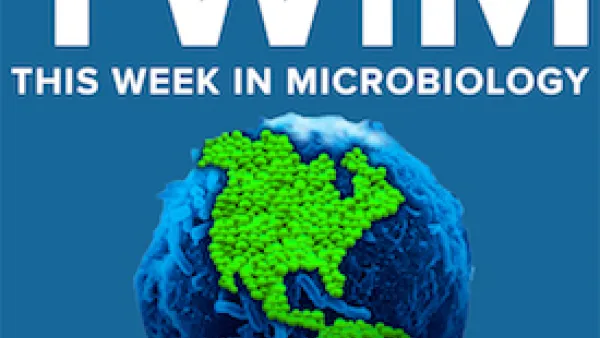Barbara Kunkel grew up in Berkeley CA. Both of her parents were PhDs in scientific fields. Her father was a Physics professor at UC Berkeley. Her mother was a postdoc in botany, but discontinued her research when she became a mother. While there was never any direct pressure to become a scientist, or attempts to influence her career path, being surrounded by scientists cultivated an early interest in the field for Dr. Kunkel. She attended University of California-Davis because she was interested in becoming a vet and they offer the only veterinary program in the UC state college system. By the time she finished high school, she changed her mind about veterinary science, but still attended UC-Davis where she started studying agricultural sciences. She had always been attracted to the romantic idea of farming, and agriculture, or raising and training horses, not yet realizing that these can be very difficult and frustrating lines of work!
During her undergrad years, she took a genetics class with Francisco Ayala, and this transformed her interest from applied agrarian science to fundamental research. She majored in genetics, mostly focused on plant and bacterial genetics. She completed her PhD at Harvard, studying regulation of gene expression in Bacillus subtilis in Richard Losick’s Lab. She completed her postdoc at UC-Berkeley with Brian Staskawicz, where she began working on plant-pathogen interactions.
Dr. Kunkel always knew she wanted work in some sort of biological field, but it was never medicine, never human medicine at least. She credits her various courses and professors at UC Davis for exposing her to different areas of biology and helping her discover that she wanted to do research as a career. After her postdoc, she and her husband, also a biologist, Michael Nonet started looking for permanent positions, hoping to end up at the same university. Washington University provided such an opportunity, and offered them both assistant professor positions. They joined the faculty here in spring of 1994, Dr. Nonet in the Department of Neuroscience (then it was the Department of Anatomy and Neurobiology) at the med school and she in the Biology Department on the Danforth campus. This was the best place for the two of them scientifically, for her specifically because Wash U had a strong plant biology program and a strong microbiology program at the med school. Luckily, they also found St. Louis to be a great place to live. Dr. Kunkel found Wash U to be a welcoming place to start out as a young professor setting up her research program in studying pathogenesis. The strong support of a couple of colleagues in the microbiology department encouraged her to continue on this path, though her postdoc was more focused on the plant side of the research.
The Kunkel Lab’s research group is interested in virulence mechanisms of plant pathogens. The group is studying the bacterial plant pathogen Pseudomonas syringae and one of its hosts, Arabidopsis thaliana, a system in which both pathogen and host are amenable to genetic and molecular analysis. The group's approach involves identifying and characterizing both pathogen and plant genes that govern whether interactions between these two organisms result in disease or not. The research currently focuses on the roles of the plant hormone auxin (indole acetic acid, IAA) during pathogenesis. Interestingly, IAA, which is well-known for its many effects on plant growth and development and more recently regulation of plant defenses, also can act as a microbial signaling molecule that regulates bacterial gene expression.
Alongside work in her lab, Dr. Kunkel started out teaching Bio 437 DNA Manipulations Lab when she first joined the Biology Department. She then co-taught Bio 3041 Plant Biology and Genetic Engineering with Craig Pikkard. She then team taught Plant Biology and Genetic Engineering with Elizabeth Haswell, who took the class over in 2013 when Barbara started teaching Bio 2960 Principles of Biology I with John Majors and Kathy Hafer. She has also been a member of the team of faculty teaching Bio 4023: How Plants Work, for many years, and she is currently the Course Master for the class. Dr. Kunkel took a sabbatical in 2017 and then started a new course Bio1771: Special Topics in Biology: Plant-Associated Microbes - Friends or Foes? for Deneb STAR students. Deneb provides students who are the first in their family to attend college or who are from under-resourced socioeconomic backgrounds, with resources and community before, during, and beyond their time at Washington University in St. Louis so that they may excel and access all the opportunities that WashU has to offer. Four first year students work with Dr. Kunkel over the entire academic year on a research project. A goal of this course is to develop a mentoring relationship with the students in addition to providing them with a hands-on research experience and the opportunity to begin to see themselves as scientists. The hope is that as the students become more comfortable directly interacting with a professor on a regular basis, they will gain confidence and be more likely to approach professors with questions in future courses.
Dr. Kunkel is a Bio 200/500 mentor, and currently has 3 undergrads working in her lab for credit. She is also a major advisor, mostly for students majoring in the biochemistry and molecular biology track. Through her teaching and mentoring of undergrads, one thing she feels strongly about is letting undergrads know that faculty are here to support students. Professors are excited when students come forward with questions and issues regarding classes. It’s especially hard to get to know undergrads when they are in large introductory courses. She encourages all students to come to their professors and take advantage of office hours to ask questions. To learn more about Barbara Kunkel and the Kunkel Lab, visit: https://pages.wustl.edu/kunkellab.



